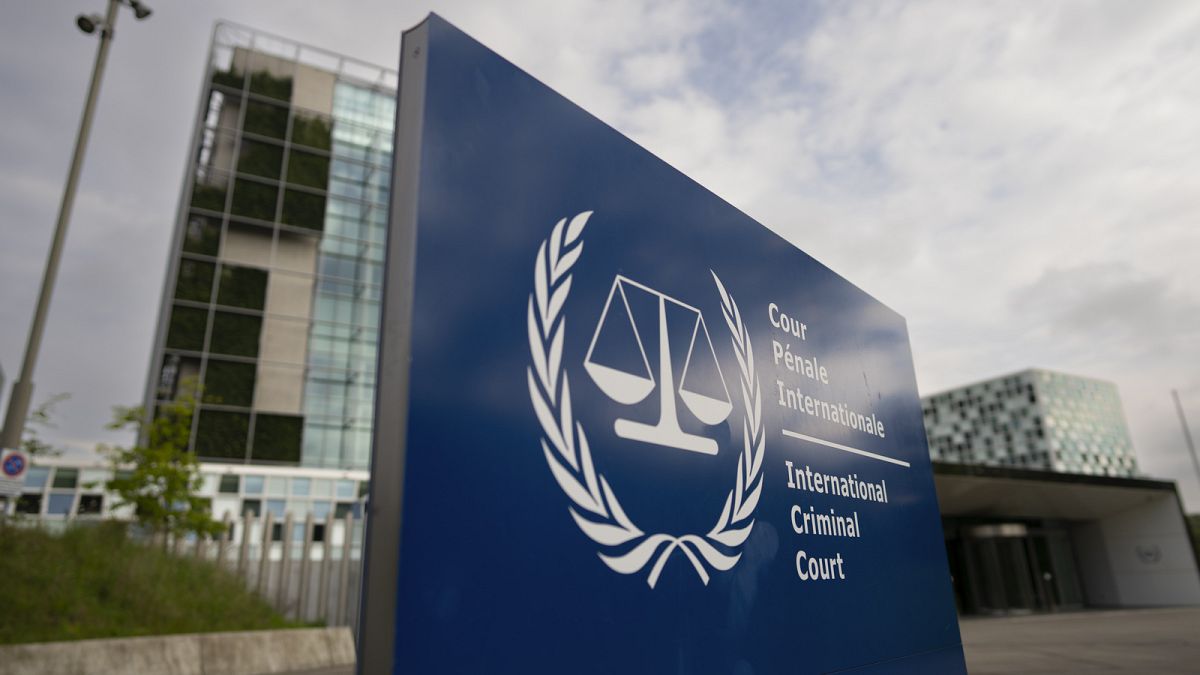Where do EU countries stand on ICC’s arrest warrant for Netanyahu?

The International Criminal Court’s (ICC) arrest warrant for Benjamin Netanyahu continues to draw mixed and often ambiguous reactions from European officials.
France has become the latest EU country to cast doubt over the International Criminal Court’s (ICC) arrest warrant for Benjamin Netanyahu, claiming the Israeli prime minister could be immune to the court’s orders.
It’s yet another sign that the landmark decision to call for Netanyahu’s arrest has driven a wedge between EU countries.
The Hague-based court issued arrest warrants for key members of Israel and Hamas’ leadership on 21 November, following a request made by ICC Prosecutor Karim Khan in May. It cited crimes against humanity and war crimes in the conflict between Israel and Hamas.
The ICC has no mandate to enforce its warrants and relies on its 124 state parties, which include all 27 EU Member States, to arrest suspects at large.
While Hungary is the only EU country that has so far explicitly said it would defy the court’s orders, just a handful of European capitals have vowed to arrest Netanyahu should he step on their territories, despite their legal obligation to do so.
Many governments have made conflicting statements, claiming they support the court’s work but refusing to commit to the arrest. Human Rights Watch says the non-committal stance of EU states “breeds a climate of impunity.”
Which EU Member States would comply?
Belgium, The Netherlands, Ireland, Lithuania, Slovenia and Spain have given the strongest indications they would enforce the arrest warrant.
Outgoing prime minister Alexander De Croo said last Thursday that Belgium would “assume its responsibility”, adding that there can be “no double standards.”
Dutch Foreign Minister Caspar Veldkamp has told parliament Netanyahu would be arrested in the Netherlands, and cancelled a visit to Israel in the wake of the ICC issuing the arrest warrant.
Ireland and Spain, who have jointly pressed on the EU to sanction Israel for its operations in Gaza and Lebanon, have also suggested they would act on the warrant, as have Lithuania and Slovenia.
Despite being a firm Israel ally, Austria has also suggested it would be forced to comply. In a statement, Foreign Minister Alexander Schallenberg described the warrant as “utterly incomprehensible” and “absurd”, but added that “international law is non-negotiable and applies everywhere, at all times.”
Estonia, Sweden and Denmark have also spoken in support of the work of the ICC since the warrants were issued, without explicitly saying they would be willing to arrest the Israeli leader.
France, Germany and Italy non-committal
But the non-committal stance of many EU states, including its three most populous counties — France, Germany and Italy — risks further eroding the court’s authority.
The French government, which says it is a strong proponent of the ICC’s role in upholding international law, has claimed Netanyahu has immunity from arrest warrants as Israel is not a member of the court.
In a statement, the French Foreign Ministry said: “A State cannot be required to act inconsistently with its obligations under international law with respect to the immunities of States not party to the ICC.”
“Such immunities apply to Prime Minister Netanyahu and the other ministers concerned and will have to be taken into account should the ICC request of us their arrest and surrender,” the statement added.
The comments came after Paris had initially indicated it would fulfil its obligations in response to the warrant.
Similarly, Italy has questioned the feasibility of Netanyahu’s detention, with Foreign Minister Antonio Tajani saying last week that “the arrest of Netanyahu is unfeasible, at least as long as he is prime minister.”
Germany initially said it would “examine” its possible response to the warrant, but is considered torn between its unwavering support to the court and its historic responsibility towards Israel.
German Foreign Minister Annalena Baerbock went on to hint that Berlin would potentially comply with the warrant, telling reporters on the margins of a G7 meeting in Italy that “the German government abides by the law because nobody is above the law.”
But a government spokesperson has recently said he had “difficulty imagining” Germany would ever detain Netanyahu on its territory, signalling potential fissures on the issue within the three-way coalition government.
Related
A New Book Argues That What Happens in Europe Doesn’t…
Remaking the World: European Distinctiveness and the Transformation of Politics, Culture, and the Economy by Jerrold Seigel “No issue in world
Poland plans military training for every adult male amid growing…
Poland’s prime minister, Donald Tusk, has said his government is working on a plan to prepare large-scale military training for every adult male in response t
2025 European Athletics Indoor Championships: Ditaji Kambundji secures women’s 60m…
Switzerland’s Ditaji Kambundji walked away from the 2025 European Athletics Indoor Championships in Apeldoorn on 7 March with much more than her first Europea
Takeaways from the EU’s landmark security summit after Trump said…
BRUSSELS (AP) — European Union leaders are trumpeting their endorsement of a plan to free up hundreds of billions of








